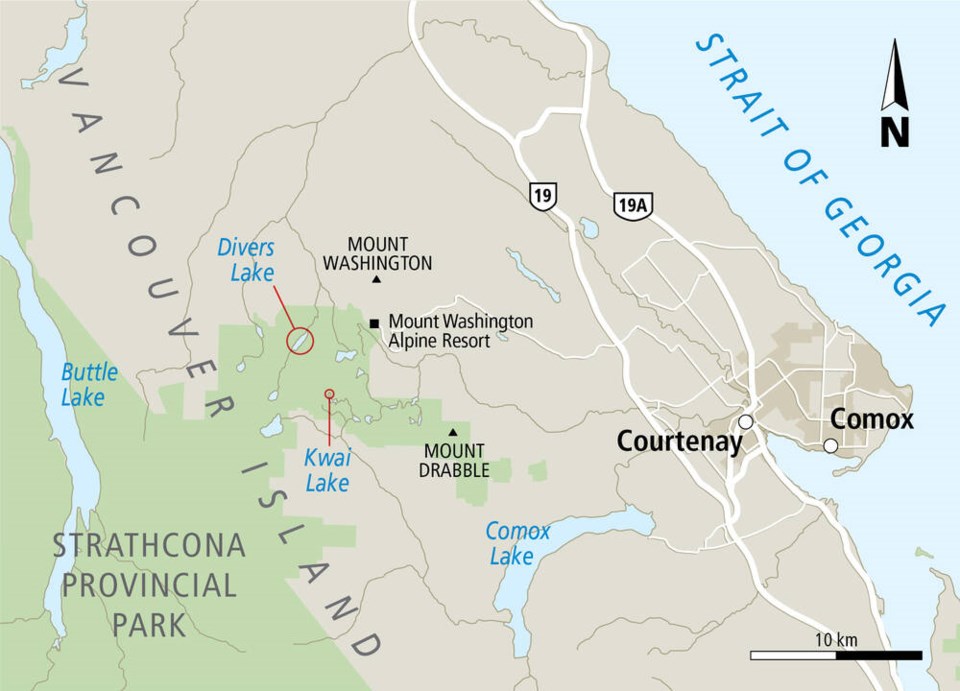Comox Valley Search and Rescue responded to five people in two incidents Sunday in the backcountry of Strathcona Provincial Park, including a trio holed up in a cabin who didn’t realize anyone was searching for them.
The three people had set out for a cabin on Divers Lake and spent the night there, said search and rescue spokesman Paul Berry. The group had started from Raven’s Lodge at Mount Washington Alpine Resort on “splitboards” — snowboards that can be separated into two pieces to use as skis, depending on terrain.
“They hadn’t really filed a very clear trip plan,” Berry said. “And they had attempted to leave the day before, but were unable because of terrain and weather.”
They left on Saturday about 2 p.m. with a fourth person, but he decided to turn back and put out a call for help when his friends failed to return when he thought they would, due to some miscommunication, Berry said. A good trip plan could have prevented a search, he said.
Mount Washington assisted with the rescue, using a snow cat to break a trail to the area of the cabin, Berry said. Members of the group were towed out by the rescue team’s snowmobiles.
Berry said the men were equipped for avalanche conditions with beacons, probes and shovels, but were not prepared for a situation where the weather might prevent them from getting back to the cabin.
“They did not have tents or sleeping bags or enough additional clothing to look after themselves.”
The second rescue involved a pair of snowshoers from Nanaimo in their mid- to late 20s who also left from Raven’s Lodge, Berry said.
“They had headed out on Saturday with the intent of summitting Mount Drabble,” he said. “They were not able to because of the weather conditions and so camped at Kwai Lake.”
He said the snowshoers were aware there was going to be some overnight snow, but there was more than they expected.
“They were certainly prepared for winter camping,” he said. “They anticipated around 10 centimetres of snow, but woke up to close to 100.”
Since the snowfall was making it tough for them to get very far — they were averaging between 200 and 300 metres of travel per hour — they activated their “spot beacon” to contact help, saying they were becoming disoriented.
“Fortunately, one of our search teams looking for the other crew was in pretty close proximity when the spot beacon was activated,” Berry said.
He said both groups were relying on cellphones for navigation, but the first group’s battery died and the second group found cellphone use challenging because of the whiteout conditions.

